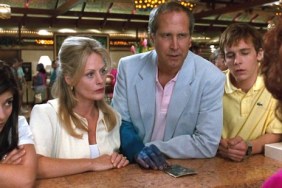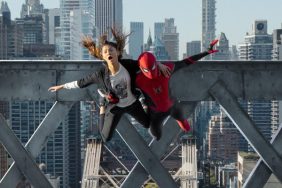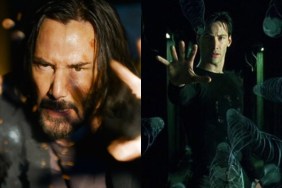So, I totally won Comic-Con. I’m not going to be modest here, other people may have interviewed superheroes or cosplayed all night long, but I met Wong motherfuckin’ Kar Wai. The U.S. cut of his martial arts film The Grandmaster played at midnight on the last full night of Comic-Con, and at a cocktail reception at Nobu (Japanese, but who’s counting?) Wong sauntered in like he owned the place. I was granted an audience with the legendary filmmaker to talk about his depiction of Yip Man, the martial arts master also portrayed in Donnie Yen’s films as Ip Man, and the man who taught Bruce Lee.
CraveOnline: I understand The Grandmaster took five years. Was that primarily in shooting or editing?
Wong Kar Wai: No, no, we had to spend three years on the road, for the training sessions and the shooting actually took 22 months. You know Tony Leung, right? He’s a very good actor but he never practiced martial arts. Look at him [in the film] and you’ll know why it takes three years.
In Hollywood they do the three or four months training so they can do The Matrix or Kill Bill fights. Why was it important to you to go even further?
Because The Matrix is sort of like action, but more like a show. To be in this film, they have to be really doing everything by themselves. There’s no special effects. There’s no doubles. They’re not doing the martial arts only in the close-up. Just imagine for the first scene of Tony, he’s going to fight with Cung Le, the world champion in MMA. And also I think it’s important for them to go through this. It’s not only about the skill. They have to manage the skill but at the same time they have to understand the manner and the spirit of a martial arts master.
Were you concerned that Donnie Yen was doing a series of movies about Yip Man also?
No, because actually when we announced this, that Ip Man franchise came before us. I think it’s good to have films telling the story of Yip Man but in a way, we all have different approaches.
Of course. There have been so many movies about Wong Fei-Hung and they keep making those. Why do you think it took so long for Yip Man to become one of the legendary film characters?
Because in this film, it’s not only about one character. It’s really about the martial art world. We always call the film “Once Upon A Time In Kung Fu.” This is telling the man and his time and I think that’s a very different approach. I think in this film, it’s a kung fu film, for a lot of audiences this is the first time they really have an understanding, not only who is the best fighter but also why martial arts, Chinese martial arts has a long history and it’s so important.
In the sequences in the rain and in the ice, it’s not just about the fighting. How did you want to photograph the fighting in ways we’ve never seen before?
The funny thing is, because we want this movie, all the action scenes to be very precise. Because we have so many different schools, they’re from the north, they’re from the south, it has to make a difference. It has to be authentic. So we have all these masters from that school on set. For martial art masters, they would say, “Well, actually a real master would never fight ten moves or five moves. It’s always one punch, one kick and that’s it. And it’s so fast, sometimes you don’t even have time to get it.” But it’s so difficult for us, you can’t make a film with only one punch or one kick, so you have to analyze the whole mechanics of that move. So you have to explore shooting with different angles and also different speeds, and that’s hard.
Did Yuen Woo-ping teach you a lot or did you push him to do things he’d never done before?
Both. I think we are pushing each other and I think it’s a very memorable collaboration. Just imagine for Yuen Woo-ping, working on a film for two years is something he hadn’t done for years.
Was it fun to shoot these elaborate fight sequences?
It is because just imagine you spend like a month on the first scene, the rain scene and two months on the last action scene where Zhang Ziyi is fighting at the train station. We are shooting it somewhere in the north, in a remote town outside Shenyang and every night is -20 [degrees]. It’s so cold that we could only have a few setups every night.
Did you use CGI for the scenes where Zhang is being pushed into the speeding train?
Yeah, we had to. We only used CGI for that purpose. Otherwise, for the rest of the film, all the action basically is really hardcore.
Is there wirework where you have to remove the wires digitally?
Yeah, because sometimes when you have to enhance an effect, like someone gets punched and he has to fly away, you have to use wires because Yuen Woo-ping is a very, very good action choreographer, not only for the effects but also for the safety. He’s very concerned about the safety of not only his cast but also all the stuntmen on set.









